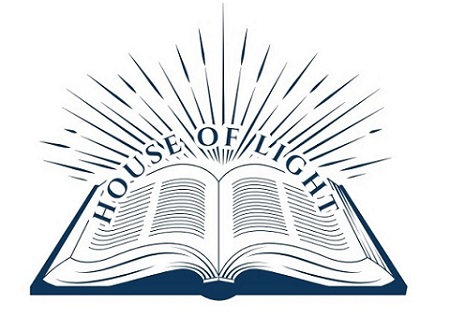
This article is one of several concerning the importance of Mental Health and Christianity, researched and written by Mrs. Andrina Jordan (MA, LPC, NCC, CPCS). For more information about her practice, visit 712 Q.A.C.C. Counseling For The Soul, LLC.
What are you putting in your body? When we fill our bodies with junk food, processed food, and high sugar diets we create a road map for disaster. We cannot constantly feed our bodies toxins that have no nutritional value and expect our bodies to function optimally. With that said we must eat responsibly.
The same is true for what we put on our bodies and feed our minds. We cannot constantly place toxins on our skin or overstimulate our brains with negativity that has minimal value and expect our bodies and brains to function optimally. This includes toxic relationships, spiritual toxins, financial toxins, and societal toxins. What are you putting on your body? Do you know? What information are you allowing to enter your mind?
Consider what you may need to detox or fast from in these areas. Are you aware that many beauty products and household cleaning supplies release toxins into our bodies? Let’s not forget the hormones that are used on some farm animals or the pesticides and growth chemicals that are used on our produce to maximize crops or the added preservatives that are placed in our foods to extend shelf life. Even with organic foods, we have to be careful due to cross-contamination.
While we will probably never be able to eliminate our exposure to toxins 100%, this is all the more reason why we should be proactive with what we consume and how we care for our bodies, minds included. After all, we only have one.
Sometimes we may need to detox to give our bodies a jump start. The ultimate way to detox is to fast. Fasting accelerates the detoxification of toxins in our bodies. There are several ways to do this.
Traditionally fasting is the act of depriving oneself of food and liquids. This is mentioned early on in the bible, in Exodus 34:27-28 KJV.
“And the Lord said unto Moses, write thou these words: for after the tenor of these words I have made a covenant with thee and with Israel. And he was there with the Lord forty days and forty nights; he did neither eat bread nor drink water. And he wrote upon the tables the words of the covenant, the ten commandments.”
This is when Moses was up on mount Sinai to commune with God to write out the Ten Commandments. We see fasting again in Leviticus 23: 27 KJV.
“Also on the tenth day of this seventh month there shall be a day of atonement: it shall be an holy convocation unto you; and ye shall afflict your souls, and offer an offering made by fire unto the Lord.”
This is a time when Hebrew Israelites celebrate the Day of Atonement, a holy feast of God. It is celebrated by the act of not consuming any food or liquids. This is an annual 24-hour fast that is done in remembrance that Jesus afflicted his soul by dying on the cross for our sins. Isaiah 58 talks about many of the reasons people fast. However, in this chapter of Isaiah, God shares that he desires obedience over vain fasting. He also shares the many blessings that may be given as a result of obedience and fasting in the spirit, in righteousness; a fast of his choice.
There are different types of fasts. A complete fast is when one abstains from consuming everything. Meaning no food or drink. Most people do this type of fast for a short period of time. Oftentimes people of the bible exercised this type of fast to gain power with the Lord and have him move expediently on their behalf. This type of fast would be used to cast out demons and also to gain spiritual clarity.
In Mark chapter 9, a man presents his son, possessed by a demon to Jesus. The man explains that the disciples were not able to cast the demon out. Jesus responds in verse 29.
“And he said unto them, This kind can come forth by nothing, but by prayer and fasting.” – Mark 9:29 KJV.
Matthew 17:21 says the same. Jesus himself also fasted 40 days and 40 nights.
“Then was Jesus led up of the Spirit into the wilderness to be tempted of the devil. And when he had fasted forty days and forty nights, he was afterward an hungred. And when the tempter came to him, he said, If thou be the Son of God, command that these stones be made bread. But he answered and said, It is written, Man shall not live by bread alone, but by every word that proceedeth out of the mouth of God.” – Matthew 4:1-4 KJV.
Now that is food for thought!
Ironically enough fasting not only provides spiritual clarity but also mental clarity and physical health benefits. The next two types of fasts are completed more often than the first in our society.
A normal fast is a type of fast where one abstains from eating any food but will drink liquids, primarily water. Some people incorporate other liquids like juices or soups. Individuals usually choose a specific number of days to endure this type of fast. Many people use this type of fasting for spiritual purposes, weight loss or to prepare for medical procedures.
Intermittent fasting is when an individual goes without food for an extended period of time. For example, one might choose to fast for 15 hours of the day and leave 9 hours open for eating. Once the 9-hour timeframe has expired the individual goes back to fasting for another 15 hours. Some people choose to do this for a certain number of weeks, months or even as a lifestyle change. There are also a variety of ways to complete intermittent fasting.
Now you may be thinking, “I can’t do a complete fast or I can’t go without eating for fifteen hours”. Well, you’d be surprised what you are able to do when you set your mind to it. You can even start with a shorter fast and work your way up. It has been found that as little as 6 hours of fasting can begin the healing process.
Fasting has been linked to improving the following mental health ailments:
- Stress levels
- Symptoms of anxiety and depression
- Dementia
- Alzheimer’s
- Parkinson’s
- Stroke
- Cognitive decline
- Epilepsy
- Multiple sclerosis
Fasting essentially reduces inflammation. In turn, this reduces cellular damage. Promoting healthier brain functioning by creating new brain cells and improving communication between the neurotransmitters in the brain.
While there are many positives to food fasting, these are just a few mental health and spiritual benefits. Please consult with your primary care physician, mental health clinician, and any other healthcare professional whose care you are under, to see if fasting is right for you! And don’t forget there may be other negative items in your life, outside of food, that you may want to detox from as well. Jot down some bullet points of negative things that you would like to let go of. Create a plan and put it into action.
Here’s to a healthier, happier you!

Recent Comments